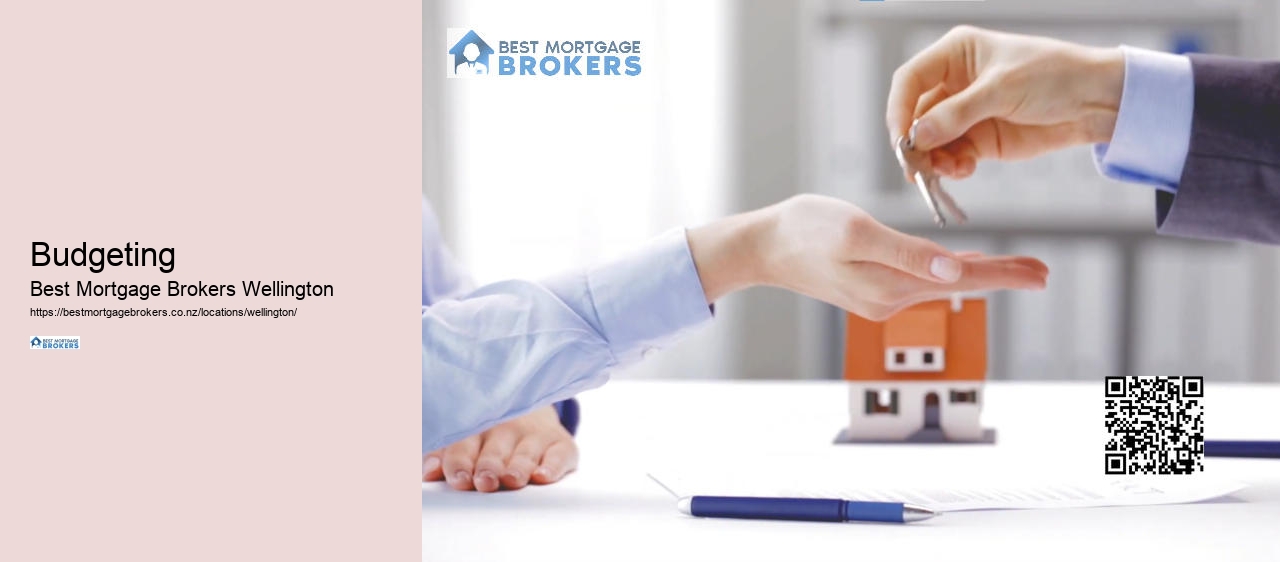

By reducing the principal amount, you can build equity faster and potentially shorten the term of your loan. Additionally, increasing the value of your property through renovations or upgrades can also boost your home equity. Improving the overall condition and appeal of your home can lead to a higher appraised value, increasing your equity in the process.
By staying informed about the real estate market, you can make strategic decisions that positively impact the value of your home. Overall, maximizing home equity requires proactive financial planning and smart utilization of available resources.
It's crucial to understand the terms of your mortgage, including interest rates, repayment schedules, and potential hidden fees. One common mistake to avoid is rushing into a mortgage without fully comprehending the financial implications.
Another mistake to avoid is overextending yourself financially.
Failing to do so can lead to financial strain and potentially put your home at risk. Additionally, it's essential to maintain a good credit score throughout the mortgage process. Your credit score plays a significant role in determining the interest rate you qualify for.
Understanding the importance of mortgage insurance is crucial for protecting your investment in the event of unforeseen circumstances. Mortgage insurance is a financial product that helps safeguard lenders from the risk of borrowers defaulting on their mortgage payments.
Mortgage insurance can come in different forms, such as private mortgage insurance (PMI) for conventional loans or mortgage insurance premiums (MIP) for FHA loans. Having mortgage insurance in place provides a layer of protection for lenders, allowing them to approve loans for borrowers who may not meet the conventional 20% down payment requirement. lendal mortgages
In the unfortunate event that you are unable to make your mortgage payments, mortgage insurance can help cover the lender's losses. This protection ensures that you won't lose your home to foreclosure and helps maintain the stability of the housing market.
It's essential to understand the terms and conditions of your mortgage insurance policy to know what is covered and how to make a claim if needed. Working with a knowledgeable mortgage advisor can help you navigate the complexities of mortgage insurance and ensure that you have the right coverage for your specific needs. Navigating credit challenges can be a daunting task for individuals seeking to secure a mortgage for their dream home.
Start by obtaining a copy of your credit report to understand the factors affecting your credit score. financial strategies Look for any errors or discrepancies that could be negatively impacting your rating.
If your credit score is low due to missed payments or high credit utilization, take steps to improve it. Begin by paying bills on time and reducing outstanding balances on credit accounts.
A mortgage advisor can provide guidance on the best strategies to boost your credit score efficiently. In some cases, lenders may offer specialized mortgage products for individuals with imperfect credit.


These options often come with higher interest rates or additional requirements, so it's crucial to weigh the pros and cons carefully. Working with a knowledgeable mortgage broker can help you explore all available options and find a solution that fits your financial situation.
Mortgage term refers to the length of time over which you agree to repay your home loan. The most common mortgage term lengths are 15, 20, or 30 years, but there are other options as well. Each term length has its pros and cons, so it's essential to choose one that aligns with your financial goals and circumstances.
On the other hand, a longer mortgage term, like 30 years, offers lower monthly payments but results in higher interest costs over the life of the loan. It's important to strike a balance between a term length that fits your budget and one that helps you build equity in your home efficiently. loan
This flexibility can be beneficial if you want to tailor your mortgage to better suit your financial situation. Consider consulting with a mortgage advisor to determine the best term option for your specific needs and goals.
The down payment is the initial amount you pay upfront towards the purchase price of your home. Typically, the larger the down payment, the lower your loan amount will be.

This can lead to lower monthly payments and reduced interest costs over the life of the loan. A higher down payment percentage often results in better interest rates and can also help you avoid additional costs like private mortgage insurance (PMI). PMI is usually required for conventional loans with down payments less than 20% of the home's purchase price.
On the flip side, a smaller down payment means a higher loan amount, which translates to higher monthly payments and increased interest expenses. It's essential to strike a balance between your down payment amount and your financial goals.
A mortgage advisor can provide personalized guidance based on your unique financial situation to help you make an informed decision. Let's navigate the process of property appraisals to ensure a smooth understanding of your property's value.
They provide an unbiased estimate of your property's worth, influencing the loan amount you can secure. Appraisals are conducted by licensed professionals who consider various factors like the property's location, size, condition, and comparable sales in the area. property goals
During a property appraisal, the appraiser will visit the property to assess its features and condition. It's essential to prepare your property by ensuring it is clean, well-maintained, and showcasing any recent upgrades. While you cannot influence the final appraisal value directly, presenting your property in the best light can positively impact the appraisal outcome.
This ratio affects the interest rate, loan amount, and even the requirement for private mortgage insurance. Understanding the property appraisal process can help you navigate the mortgage application with confidence.
Closing costs are the fees and expenses you pay when you finalize your mortgage. These costs typically include loan origination fees, appraisal fees, title insurance, attorney fees, and more.
As mortgage advisors, we emphasize the significance of budgeting for closing costs early on in the homebuying process. By understanding these expenses upfront, you can avoid any last-minute financial surprises and ensure a smoother closing process.

Predicting future mortgage rates is challenging. Rates are influenced by economic factors. Monitoring market trends and consulting with financial experts or your mortgage broker can provide insights into potential rate changes.
Yes, it is possible to move your mortgage to another lender, a process known as refinancing. Our brokers can help you navigate this process, evaluating potential benefits and ensuring a smooth transition to a new lender if it aligns with your financial goals.
Typically, initial consultations with mortgage brokers are free of charge. Brokers aim to understand your needs and provide guidance on the mortgage process during this stage. Any potential fees and costs associated with the mortgage application will be discussed transparently.
A broker can offer access to multiple lenders, providing a broader range of mortgage options. They can negotiate terms on your behalf and streamline the application process. Best Mortgage Brokers simplifies the process, connecting you with brokers dedicated to your financial success.
It's generally advisable to obtain preapproval from multiple banks to compare offers. Our brokers can assist in navigating this process, ensuring you have a comprehensive understanding of your options.